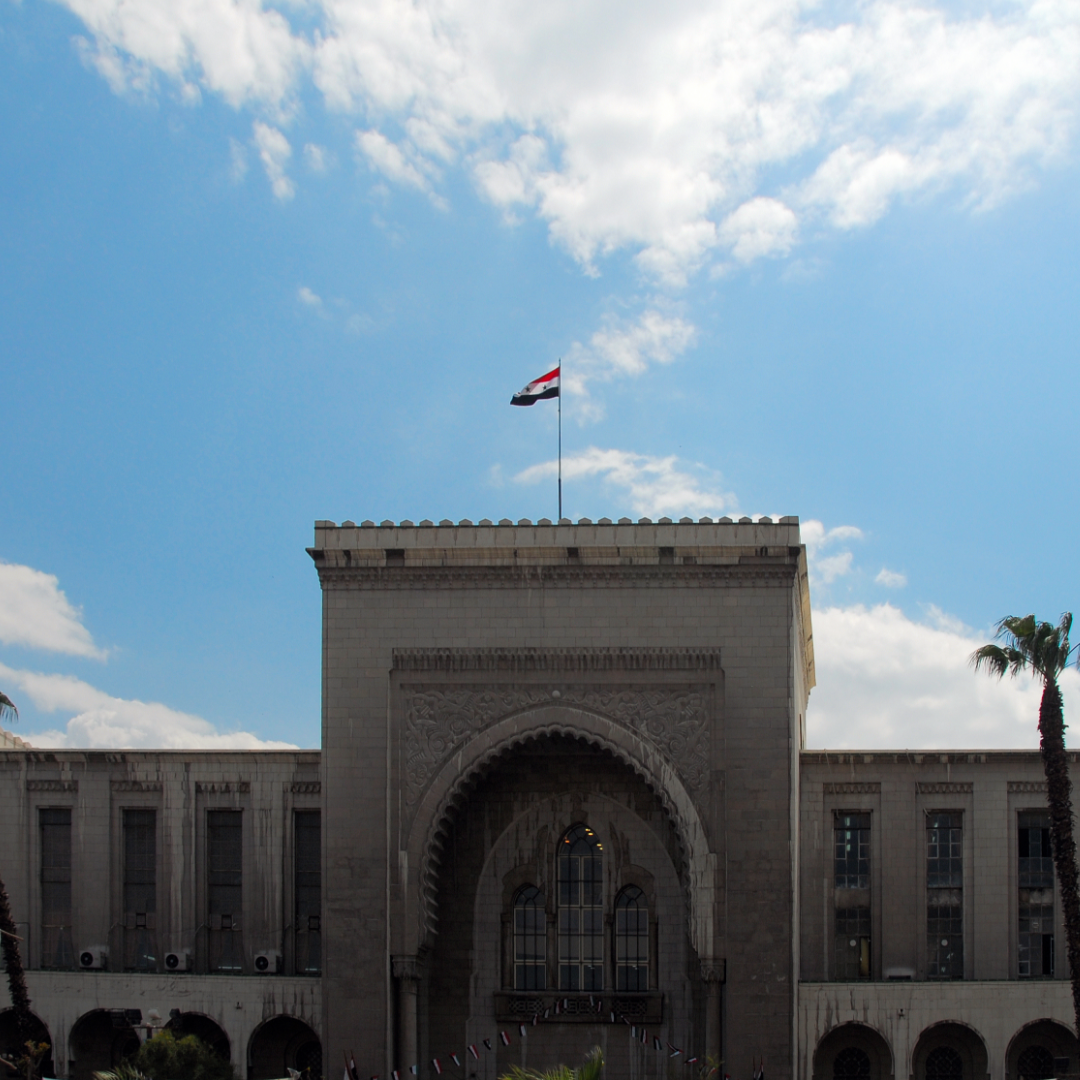
SYRIA
Lawyers in Conflict Situations

SYRIA
Lawyers in Conflict Situations
On 20 May 2022, Syrian lawyer, Mazen Khaled Salah, arrived in France after spending nine years in the government prisons. On 23 May, The Time released its list of the 100 most influential personalities, which this year included two Syrian lawyers and former political prisoners, Mazen Derwish and Anwar Al-Bunni. The Journey of Mazen Salah, Mazen Darwish and Anwar Al-Bunni summarizes the ordeal endured by Syrian lawyers standing for human rights, and sheds light on their bright achievements. Most of lawyers and legal networks currently defending human rights in Syria emerged during the so-called “Damascus Spring” of 2000. While the crackdown on these activists and human rights organizations started as early as 2004, they played a critical role in standing for and diffusing ideas of human rights, public liberties and democracy which were eventually marshalled by the peaceful demonstrators of 2011.
As of 2022, Syrian human rights defenders’ situation has dramatically deteriorated since the repression of the 2011 protests of which lawyers were privileged targets. Many of them were subject to arbitrary detention, enforced disappearance, malicious prosecution, death threats, and restrictions on freedom of movement among other forms of harassment. Indeed, the conditions under which they are currently operating inside are less than enviable. In areas under the Government of Syria’s control, lawyers can officially stand before and bring cases to courts including military courts. However, as soon as cases involve political prisoners, pleading before courts becomes a dangerous endeavor. Still some lawyers do stand in cases of housing, land and property, an issue that has been weaponized by the government to pressure dissident. Others dare providing legal aid in cases of arbitrary detention with a view at freeing their clients on technicalities and procedural flaws. They remain deprived of the procedural guarantees provided for notably in the laws governing legal profession. Standing in a case of arbitrary detention by a non-state actor -Ahmed Jebril’s Palestinian group- the Damascus based lawyer, Aref Al-Shaal, himself a former political prisoner, was convoked by security services who ordered him to abandon the proceedings.
In areas outside the government control, the situation of lawyers defending human rights is subject to the contingencies of changing legal system, armed groups, and foreign interveners. Many lawyers in the North West abandoned their profession due to the peculiar nature of the applicable law, uncodified Islamic law, as well as the Salvation Government’s interventions. Yet, public mobilizations in this area, often ignited by professional lawyers, resulting in some instances in the release of political prisoners or prosecution of militant groups. In the North East controlled by the Syrian Interim Government (SIG), the Turkish-backed opposition maintained the legal and judicial structures of the Syrian Government; to the extent that they are compatible with the objectives of the revolution. In practice, however, this system has ‘sporadic’ courts, and operates under the supervision of Turkish authorities and their backed armed groups. In the Syrian Democratic Forces controlled areas in the East, a peculiar legal system has been established with courts functioning sporadically and impose strict ideological limits on lawyers. Due to these complexities, most of Syrian lawyers defending human rights moved abroad wherefrom they continued their fights. There exist around 30 NGOs and civil society networks focusing on human rights. Their activities include documenting human rights violations, monitoring and reporting, assisting Syrians abroad in their legal procedures, organizing advocacy campaigns, and bringing human rights violators before foreign courts.
The Syrian Centre for Media and Freedom of Expression (SCM), and the Syrian Centre for Legal Studies and Research (LSRC) have been instrumental in prosecuting Syrian human rights violators before national courts in Germany, France, Sweden, Norway, Switzerland, the Netherlands and the United Kingdom. In parallel, they have devoted units to the UN human rights mechanism to which they report and before which they bring individual cases where applicable. In addition, these two organizations are important sources for the war crimes units in a number of countries, including the United States and Canada. The Syrian Centre for Media and Freedom of Expression, in particular, is heavily involved in the current international efforts aiming at establishing an Internationally mandated Independent Mechanism on the issue of Enforced Disappearances in Syria. In recognition for their outstanding contribution, leaders of the SCM and the LSRC were designated by The Time in May 2022, among the 100 most influential personalities in the world. Mazen Darwish, Director of the SCM, former political prisoner, had previously received - together with Chancellor Merkel- the Roosevelt Four Freedoms Prize for 2016.
Standing for human rights in Syria even abroad does not go without risks and cost. Syrian lawyers promoting human rights have their families systematically harassed and intimidated by security services. Recent examples in 2019 included cases of several Syrian lawyers living abroad and who were selected to serve in the UN-Facilitated Constitutional Committee. They decided not to join the Committee after threats and intimidation were exerted on their families in Syria. Currently, Suleiman Al-Qorfan, a Syrian lawyer living in Gaziantep, Turkey, who accepted to be member of the same Committee, has two family members arbitrarily detained by the security services following his decision. This is a reminder that human rights defenders in Syria and lawyers in particular, face tremendous challenges in the fight for human rights and against impunity. They need and deserve international support.
Syria
